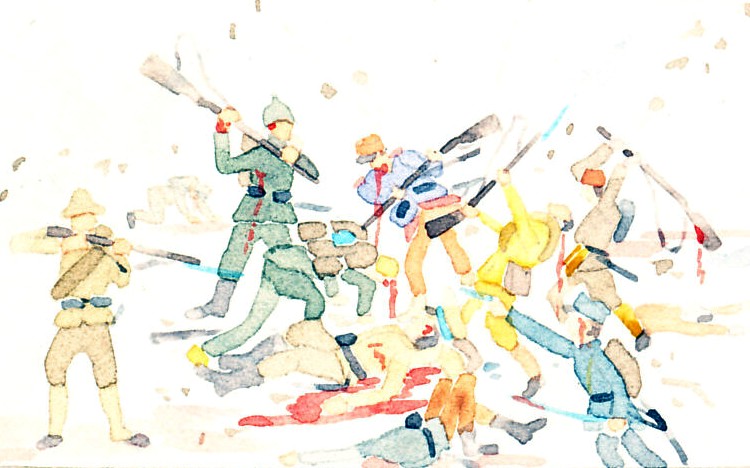1898 map of St. Petersburg, the Russian capital, from a German atlas. Central St Petersburg, or Petrograd, is on the Neva River. Key landmarks include the Peter and Paul Fortress, which served as a prison, Nevski Prospect, a primary boulevard south of the Fortress, the Finland Train Station, east of the Fortress, where Lenin made his triumphal return, the Tauride (Taurisches) Palace, which housed the Duma and later the Petrograd Soviet.

St Petersburg (Petrograd); Neva River, Peter and Paul Fortress; Nevski Prospect, Finland Bahnhof (Train Station); Taurisches (Tauride) Palace
Other views:
Larger, Detail, Detail, Detail
